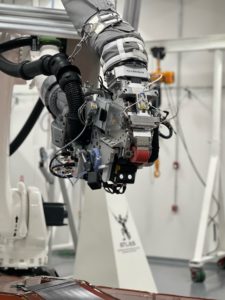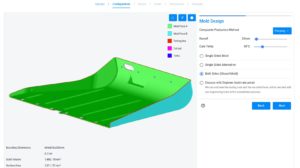Improving Traceability and Operations
Plataine’s AI, cloud-based, digital thread technology expands composites manufacturers’ insights into their supply chains. Through a digital twin, it creates a genealogy of every product, tracing its route from material supplier through manufacturing and inspection processes to customer delivery. It collects data from a variety of sources, including suppliers’ and manufacturers’ software, digitized paper records and internet-of-things (IoT) sensors that measure equipment conditions on the factory floor. Armed with this information, manufacturers can quickly alert affected customers if they discover defects in some material or production process.
In addition, with data on supplier pricing, location and availability of current materials all contained in the database, Plataine’s digital AI assistant can recommend the best sources for a particular component based on general or specific requirements, such as the need for a supplier that uses renewable energy. It can send alerts if a material is nearing its expiration or suggest alternative sources if some event, such as a strike, is likely to cause material delivery problems or production delays in certain areas.
This technology is available to manufacturers of every size. “You don’t have to install servers or have very robust IT operations. Everything is managed on the cloud, so there’s zero installation and zero disruption to the manufacturing process,” says Amir Ben-Assa, vice president of marketing and product strategy at Plataine.
Capitalizing on AI
The combination of cloud technology and AI offer composites manufacturers an unprecedented opportunity to reduce their costs and increase their competitive advantage.
“The more midsize manufacturers try to digitize and automate – especially in North America where labor is expensive – the more they will benefit from automation and the value that AI brings,” says Ben-Assa. “The less they rely on human power, the more profitable they are likely to be.”
The Future of Materials Selection
Understanding the underlying structure and geometry of composite fabrics is key to determining their properties and performance. Today, manufacturers must rely on extensive experimentation and testing of textile samples or high-level simulations of their properties that may not accurately reflect real world outcomes.
Abbas Milani, professor of mechanical engineering at the University of British Columbia, and his research team are hoping to streamline these analyses through AI/machine learning.
The researchers took micro-CT scans of different woven fabrics at different angles and configurations. The images captured internal complexities, such as waviness, voids and fiber misalignment. Next came mechanical testing on 50 of those sample fabrics to determine the specific properties of each. This image and testing information was entered into a database.
The team then took micro images of other textile samples and, using AI/machine learning, successfully predicted their properties and performance by comparing them to the database images. The entire process of identifying the fabric properties, including imaging, took less than five minutes.
With this process, composites designers who want to use a particular material will someday be able to feed its images into the database to determine its likely properties.
“The inverse application would be for materials discovery,” says Milani. “If you want a particular property from a material that doesn’t exist, you could use the images to determine what its texture should be, what the fiber orientation should be.”
Milani, who serves as technical chair of Canada’s Composites Research Network, says several industry partners have expressed interest in the process.
Mary Lou Jay is a freelance writer based in Timonium, Md. Email comments to mljay@comcast.net.
Professor Abba Milani and doctoral student Tina Olfabakhsh at the University of British Columbia are predicting material properties by using AI to compare images taken from micro-CT scans of 50 sample materials to scans of other materials.
Photo Credit: University of British Columbia, Okanagan
Researchers at NIAR have developed an in-process AFP manufacturing inspection system that could reduce the time required to make composite parts and improve their quality.
Photo Credit: Waruna Seneviratne, NIAR
Plyable’s system uses AI to design a tool based on customers’ requirements.
Photo Credit: Plyable
Plataine’s AI-based system provides more visibility into all aspects of the supply chain and sends an alert when it detects a potential problem.
Photo Credit: Plataine






